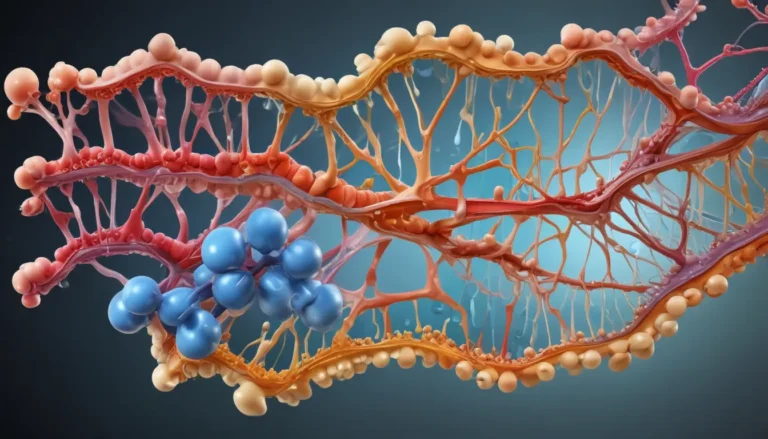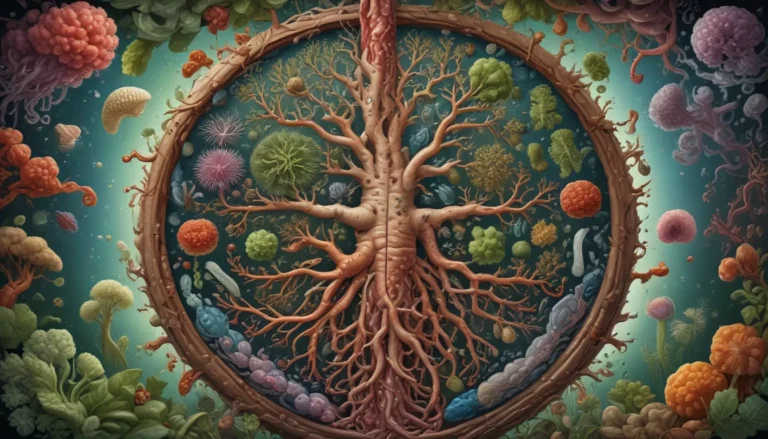A Note About Images: The images used in our articles are for illustration purposes only and may not exactly match the content. They are meant to engage readers, but the text should be relied upon for accurate information.
Nature’s gifts to humanity are immeasurable, providing us with essential services that uphold our well-being and sustain the planet’s functionality. From purifying air and water to regulating climate and supporting biodiversity, ecosystem services are the lifelines that ensure our survival. In this article, we will delve into 16 captivating facts about ecosystem services, shedding light on their significance and the diverse ways in which they impact our daily lives. Join us on this journey to uncover the wonders of nature’s contributions to our world.
Understanding the Value of Ecosystem Services
Ecosystem services encompass the multitude of benefits that humans derive from nature, ranging from food and clean water to climate regulation and pollination. These services are indispensable for our health, happiness, and continued existence on Earth.
Supporting Global Food Security
The role of ecosystems in ensuring food production cannot be overstated. Fertile soils, natural pollinators, and nutrient recycling are just a few ways in which ecosystems contribute to sustaining the world’s growing population by providing essential resources for agriculture.
Regulating Climate and Mitigating Disasters
Natural habitats like forests and wetlands act as guardians of the Earth’s climate by sequestering carbon dioxide and other greenhouse gases. They also serve as natural shields against floods, storms, and other calamities, protecting us from the wrath of nature.
Purifying Air and Water
Ecosystems function as nature’s air purifiers, filtering out pollutants and releasing oxygen into the atmosphere. Trees, in particular, play a crucial role in absorbing carbon dioxide and combating climate change. Additionally, wetlands and rivers are vital in the purification and storage of freshwater, ensuring a clean source of water for both humans and wildlife.
Enhancing Biodiversity and Wildlife Habitats
The intricate web of life within ecosystems hosts millions of plant and animal species, each playing a unique role in maintaining the balance of nature. Preserving and restoring ecosystems is essential for safeguarding biodiversity and ensuring the survival of countless species.
Promoting Human Health and Well-being
Access to natural environments has a profound impact on human health, reducing stress, improving mental well-being, and offering opportunities for physical activity. The healing power of nature is a testament to the interconnectedness between humans and the environment.
Fostering Sustainable Tourism and Economic Growth
Natural landscapes such as forests, mountains, and coastal areas are magnets for tourists seeking solace in the beauty of nature. Preserving and responsibly managing these ecosystems is not only vital for the tourism industry but also for sustaining local economies and livelihoods.
Preventing Negative Consequences of Ecosystem Loss
The degradation or destruction of ecosystems results in dire consequences such as decreased agricultural productivity, water scarcity, increased greenhouse gas emissions, and the loss of biodiversity. Urgent action is imperative to prevent irreversible damage to our precious ecosystems.
Cultivating a Culture of Conservation and Sustainability
By investing in nature conservation, we are investing in our future. The economic returns of protecting and restoring ecosystems far outweigh the costs, benefiting both the environment and local communities. Collaboration among various stakeholders is key to preserving our natural resources for generations to come.
The Interconnectedness of Ecosystem Services
Ecosystems are intricate and interconnected systems, with each service contributing to the overall health and functionality of the planet. Changes in one ecosystem can trigger cascading effects on others, emphasizing the importance of holistic conservation efforts.
Upholding Indigenous and Local Communities
Many indigenous and local communities rely directly on ecosystem services for their livelihoods and cultural practices. Their deep-rooted understanding of the symbiotic relationship between humans and nature offers invaluable insights into sustainable living practices.
Addressing the Alarming Rate of Ecosystem Loss
Human activities such as deforestation, urbanization, and pollution are accelerating the loss of ecosystems worldwide. Immediate action is essential to halt this decline and preserve the critical services that nature provides for us.
Embracing a Shared Responsibility for Conservation
Protecting and restoring ecosystems is a collective responsibility that requires the engagement of governments, businesses, communities, and individuals. Sustainable practices and informed decisions are crucial in safeguarding our planet’s invaluable resources for future generations.
Embracing a Sustainable Future through Ecosystem Services
The 16 astonishing facts about ecosystem services underscore their indispensable role in human well-being, environmental sustainability, and biodiversity preservation. By acknowledging and appreciating these services, we can pave the way for a more resilient and sustainable future for ourselves and the planet.
Conclusion
In conclusion, ecosystem services form the bedrock of our existence, providing us with a myriad of benefits that sustain life on Earth. By recognizing their value and promoting conservation efforts, we can ensure a harmonious coexistence with nature. As we confront the challenges of a changing climate and growing human demands, let us prioritize the preservation of ecosystem services for the betterment of all.
FAQs
-
What are ecosystem services?
Ecosystem services are the essential benefits derived from ecosystems, including resources like food and water, as well as services like climate regulation and cultural enjoyment. -
Why are ecosystem services important?
Ecosystem services are crucial for human well-being, ecological balance, biodiversity support, and overall quality of life. -
How do ecosystems provide services?
Ecosystems offer services through various processes such as carbon sequestration, water filtration, and pollination, sustaining life on Earth. -
Can we quantify the value of ecosystem services?
Economists have devised methods to assign a monetary value to ecosystem services, aiding in better understanding and management of these invaluable resources. -
What are some examples of ecosystem services?
Examples of ecosystem services include oxygen production by plants, water regulation by wetlands, food provision from oceans and rivers, and cultural enrichment from natural landscapes.
As we continue to unravel the mysteries of nature’s gifts through ecosystem services, let us embark on a journey of discovery and appreciation for the wonders that surround us. Together, we can nurture a sustainable future built on the foundation of ecological harmony and respect for the invaluable services that nature bestows upon us.






